|
1) Do acknowledge them Hello. Talk to them when they come in. Show some interest. Get to know them. 2) Do show respect Grow up. Kids want to be treated like an adult, this is one area in which that works. 3) Do provide food Yum. Food always works. Feed them. Even let them have access to the kitchen. 4) Do be some fun Duh. Do something unexpected from the normal routine. Be a little playful. 5) Do avoid confrontations Yield. This isn't the time to correct your kid. Do that later, where you can discuss. 6) Do remember them Notice. Names, siblings, & unique things about them. Also, how your kid knows them. 7) Do make it peaceful Zen. An environment that's void of contention makes a place people want to be. 8) Do leave a little space Exit. Give them some room. Not the bedroom. But, some talking space to be private. 9) Do like them Enjoy. Everyone has annoyances. Overlook them. See what your kid sees. Be open. 10) Do keep long hours Nap. It doesn't have to be 'open all night' but kids like late nights. Especially weekends. Bonus: Do treat them like family Include. Everyone wants to belong. Somewhere. Make it you and yours that they think of as 'family' when they need to connect. How you interaction with your kid's friends, and your kid, will benefit everyone. What do you do?
0 Comments
If you've got going back to school on your mind, here is an article at OnlineSchools.com that might give you some inspiration. It also happens to quote me and tell a little about my experience going back to school. (I'll share a few more tips another day, after I know which ones aren't going to be used for another article.) Going back to school was really hard but very worth it. An investment in me and our family.
PS Other articles I've contributed to. Last year I read an article and did a post about my New Year resolutions going in a new way. Here is part of what I said in 2011, "...after reading this article I realized that Christine's idea of picking a word as a guide for the year, something to "become", was a better fit for me now." This year I am looking back on that to see how it went. My guide word last year was "FOCUSED" and I found that is was simple and it became a sort of mantra for me. With whatever I did I went back to "focused" for guidance because that's what I was looking for in my life. It was helpful and the first 8 months went really well. The last few got a little, unfocused. I think the thing I would do differently to avoid that is to put the word up for me to see, somewhere, and so I could remember near the end of the year. Maybe by the 8th month "focused" was just more ingrained and less conscious. Whichever way, I liked it and I'm going to try it again this year. So I have a new word for 2012... It's "finish". On New Year's Day I went through many words thinking about what I wanted to have guide me and I am really in a need of finishing things. When I think of this guide word it makes me think about what I am going to take on, because I have to finish it. It makes me think that if it will help me be more thoughtful and balanced. It makes me think of what is on the table now, and finish it.
Kind of ironic because this post sat here for several days before I actually finished it, to post it. So, my guide word "finish" is very fitting. I can't believe it's December. DECEMBER. This so snuck up on me this year. As you know, it's the gift giving season! So I'm thinking about gifts, what fun they are and that I need to get busy getting mine together. One of my favorite types of gifts to get/give are kits. (ok, besides the expensive jewelry, clothes, and art categories.) Kits are so delightful. They're a surprise within a surprise. I love the feeling of being surprised again and again as I look through what was put into the kit. Friendship Bracelet Kit • A To Do Kit • (click image for link) Kits can be designed around any conceivable topic or theme. Like a Snowman Kit. Who knew I wanted a Snowman Kit. It's about as creative as you want to be. Snowman Kit • How totally clever! (click image for link) And kits don't have to be expensive. Which is such a bonus. Some of the items might not be so great on their own (like embroidery thread) but when combined with other inexpensive items and packaged up in a fun way it says I care. Which is what gift giving is all about. They can also be done straight from home. Like from your own kitchen. How convenient! Goodies Kit • Baked Goods in Cello Bags • click image for link I've already created one kit for one of my kids on a regular shopping trip. You can create a kit too. You don't even have to think up your own kit contents, there are so many great ones out there already. I have a whole pin board of them, so you can go here and just pick an idea out. Remember it's December, the gift giving season.
I haven't mentioned it but in August I started teaching 5 classes a week of kindergarten art. Since I haven't taught in the school systems as a teacher I need to get an alternative teaching certificate. Which means more college classes. One of my classes' assignments required a lesson plan with a book and my content area (art). Art & Books are a great combination. I really enjoyed doing this lesson plan and thought I'd share it here. It has Missouri's educational standards but it still might be useful for a class or home activity. Share any feedback you have so that I can improve on it.
I have 8 children and have been in a waiting room (or stuck at some other unforeseen place) a time or two with a toddler. In fact, often with several toddlers at a time. I found that these situations were not just the regular-boring-kind but the outburst-boring-kinds for kids. One of the things that worked for me was the Mini Kid Kit. It was just a small bag in my purse that had travel size things, (tiny flashlight, metal play keys, mirror, bracelet, heavy necklace, hair clip, etc), items they never got to play with under normal conditions. Basically, anything that they were curious in and weren't allowed to play with; or small toys that they usually couldn't touch because they were "mine", kept their interest when they were outburst-bored in a public place. It helped to keep them quiet on many occasions. This helped me not become the outburst mommy of the outburst toddler. If I felt like there was something in my power to do I became less frustrated and more in control of the situation. Toddlers, especially on the verge of tantrums, definitely need a mom in control of herself and the situation. The Mini Kid Kit was a tool for me to do that. But there are 3 keys to the Mini Kid Kit 1) You don't give the child the whole bag, bring out items one at a time 2) They don't see the bag in its entirety so they don't fuss for the next item before they've explored the first 3) You take away the toy (and give them the next one) before they get bored with it Rotate and re-rotate them around. Hopefully, this little tip will help you. Go ahead. Grab a ziplock bag, add a few things in it, and put it in your purse. Done.
I do not know where people, religious people in particular, get this idea in parenting but it exists - If we do this (whatever it is) then we are guaranteed to get that (whatever is attached to this). Okay, I kinda do know where the idea comes from, religiously speaking. But, how did we start applying it to parenting? And in "apply it to parenthood" I mean - If I do 'this' then my kids will (guarantee) to do/get 'that'. By espousing that application we've created a parent trap - satisfaction guaranteed. Parent Trap: Satisfaction GuaranteedHow do we know if we are in this trap? It's framed in our real lives something like this, "We've taught her/him better than that, this shouldn't be happening." Try this, "We've never done X in our home, how could (s)he get into that." Or this, "We've gone to church every week, I don't know how this could happen." If you've heard or said that, it's the snare of thinking that our efforts at being good or doing good as parents are somehow guarantees that our children will be good and do good. As parents we want an outcome (great kids) so bad that we walk willingly into this trap.The reality is that there are no guarantees in parenting. Let me repeat that - Parent Reality: There are NO Guarantees in ParentingLet that settle in a little. That can be an overwhelming realization. Which is naturally followed by thoughts of "why bother", "what's the point" or "I can't win" in parenting. But that's just looking at the problem from one point of view. Albeit a compelling one. But, to truly know where you stand on something you've actually got to move around it a bit. Let's look at it from this angle - Knowing there are no guarantees of good kids gives you permission for freedom. This is kind of cerebral but I'll try my best to explain my thoughts. Now that we are released from the previous parent trap we can switch it around a little, get in a different mental position. What about this - "since nothing is guaranteed I am free to try whatever I think might bring about what I am hoping for." Or, "If I do this and it's not guaranteed to come out that way then I am free to try something else." If the "input" doesn't guarantee "output" then you are free to add other things, omit things, and be creative in what we bring to the parenting table. For example: You want spirituality for your youth. You take them to church thinking that the action will "guarantee" spirituality. When you realize there are no guarantees from that act then you can add other ideas (like surrounding your child with spiritual friends, having one on one discussions about your spiritual journey, or give them instructions on how to personally pray) thus increasing the possibility, not the guarantee, of a spiritually strong youth. It's not being good or doing good as a parent that's the problem. It's the unrealistic expectation that what you do guarantees what they will be. Now, that doesn't mean just give up on things that have been proven to give the greatest benefit to children. We always want to increase ours, and their chances at success. But, to unequivocally expect certain results, regardless, is a parent trap. Here are 5 tips to help get past the trap and increase the likelihood of satisfaction.
Checklist for Change • 5 Tips1. Release yourself from the trap. Acknowledge that what you do may not produce what you want. There are no guarantees to parenting outcome. Free yourself from that thinking. 2. Release your child from being the maker for your parent satisfaction. Your child's behavior shouldn't be how you judge your efforts as a parent. Your parental expectations should be independent of their choices. 3. Do things from a different angle. Keep your eyes on what you think is helpful or needful for the child, not the intended outcome. Listen to your parenting instincts. 4. Don't let other's set the trap for you. Don't be held to someone else's expectations of "should", "shouldn't", "would" or "wouldn't". And don't succumb to the pressure of other's comments or criticism, instead, deliberately dictate the direction you want your parenting to take. 5. Be patient with yourself and your child. It takes time to get out of a trap. Sometimes we're wounded in the process of being trapped and it takes time to nurse and heal the wound. Take time to let the process happen. All we get when we do something, is increase our chances of an outcome a bit. Add to the likelihood that something could happen. I know what I do doesn't guarantee satisfaction. And I'm good with that. Add another tip to keep out of this trap. When my older children were young we decided to omit certain words from our family vocabulary. Words like "stupid" and "shut-up" we felt weren't respectful of each other and shouldn't be used toward each other. On one particular day I was frustrated with something and called it "stupid". Oh man, my children were indignant. They didn't differentiate between things and people and were convinced that my behavior didn't match up with our established expectations. And when they went to church the following Sunday they reported my bad behavior to their teachers - "my mom said the 's' word!" Luckily for me, I learned to control those words, even toward things, and their trust in me was restored. Though this may be minor on the scale of moral mishaps the idea of hypocrisy can be very destructive. Before we continue I like to define the critical words in the conversation so that we start out on the same terminology page, so to speak. HYPOCRISY the practice of professing standards and beliefs contrary to one's real character a pretense of having a virtuous character contrary to actual behavior a pretense of moral or religious belief that one does not really possess a pretense of having some desirable or publicly approved attitude an act or instance of hypocrisy dictionary.com To sum up, hypocrisy is practiced pretense. At times kids, teens in particular, have a real problem with their parents because of this practiced pretense or hypocrisy. Parents who don't act as they preach fall into this parent trap. The integrity trip-up, hypocrisy. And teens hate hypocrites! It doesn't have to be "major" deviations from professed piousness, minor detours will accomplish parental captivity. For those of religious belief, we automatically set ourselves up. We are preachers of something and when we fail at what we teach we are by definition hypocrites. Parent Trap: |
|||||||||||||||||||||||||
| Parent Trap • Hypocrisy.pdf | |
| File Size: | 24 kb |
| File Type: | |
CHECKLIST FOR CHANGE
• determine that the offense is worth the efforts to change it
• dedicate yourself to living in harmony to your code of conduct
• declare your intentions of working to improve a behavior to others
• draw on the goodness in you, in others and the love of family
• devote your best energies to rectify your reputation
• don't underestimate the power of your example
• Do it large
Large scale helps with large crowds - people could see my painting 50 yards away & could watch all day
• Engage Others
Create an exchange with others - I let some children paint on the painting, fun and different for those families
• Make it easy
This isn't the time to experiment - I could do this type of painting without thinking
• Open up
Something like this is as more about meeting and talking with people than it is painting
| Doing a Demo? • 4 Things to Do.pdf | |
| File Size: | 51 kb |
| File Type: | |
GOING ON A FAMILY VACATION?
HOW TO HAVE LESS STRESS • PART 2
Family Vacation Defined:
long-term committed, members of a household sharing a period of time,
suspending regular routines away from home,
devoted to emotionally fortifying kinship
through pleasure, rest, or relaxation
1 • LOSE THE ROUTINES BUT KEEP THE RULES
Routines are your regular, customary courses of the day. A morning routine might be something like this - a daughter unloads the dishwasher, a son makes the lunches, a dad cooks breakfast, and a mom gathers backpacks, coats, etc. Those are the typical tasks set up for the daily routine. But, the rule behind the routine that drives the action is - everyone contributes and helps move things along to the next thing. Rules are the principles behind the conduct and help to create conditions of order, understanding, and harmony.
Since the idea of family vacations are to be away from regular routines they are especially in need of rules. Everyone in the family might know what the routine is, because it's the action part of the day. But, it's important to establish and articulate the rules and reasons to the actions. That way your family knows what conduct is expected. Even on smooth running days, family members don't always do what they know they are supposed to do. On vacations, it's not really clear what is expected. If you apply the rule, like everyone contributes to move things along, then they know they should be looking for something to do and not just sit there waiting for parents to get it all together.
2 • DO THE DETAILS
"It's all in the details" is an idiom which means to consider all the information, down to the last, well, detail. When you're at home you can say, "we'll meet you at the park" or "pick up something from the store" and it's likely your family automatically knows where it is and what you meant. Being away from home is unfamiliar, especially if it's a first time visit to a place. On vacation, having the details, (who, when, where, how, why) help family and friends know what is going on, when it's going on, who's supposed to be there, where there is, how it's going to happen and what's needed to make it happen.
If you have events that you are going to or places you are going to visit have the phone numbers, addresses, maps, reservations, times, tickets, seating and website URL combined. If you have many people and many vehicles going to the same place, designate drivers and riders to specific cars. If you need to take food, clothes, towels, sleeping bags, or extras (inhalers, glasses, etc) to a given activity, list it. Whatever the activities, just mentally go through the process like you are actually doing it and list the pertinent details. Anticipate what someone might ask you, answer it on the list. Keep notes to add to it and the written details become a record to keep.
Having all the information is not the same as sharing it. Make it accessible to others. Put everything in a book (we've called it a travel bible before), on a white board (everyone takes a photo of it with their phone's camera), or online. Post the plan where ever the info can be easily had by others. All this will cut down on the stress of forgotten things and people, as well as, the constant information, seeking questions. This puts you less in the middle of it and also helps other's ability to be informed.
Images of the Travel Bible from our Trip • click for slides
3 • SKIP THE SCHEDULE
Vacations should be fun. And sometimes fun means spontaneously rearranging the schedule or going with something not in the plan. This may seem counter intuitive with the last tip. But, doing the details actually helps with skipping the schedule. When a change is made, then you know what needs to be addressed because of the plan details. You can quickly make changes, cancel something, or know if you can add an extra without leaving some detail undone, some call unmade, or someone left hanging. And you can't just not plan anything, that's a formula for family vacation boredom. Having a plan with details, along with leaving yourself permission to skip the schedule makes for less stress and open for unexpected excitement.
4 • SIMPLIFY ANYTHING & EVERYTHING
Vacations are meant to break from routine, be less complicated, take life easier. Simplify anything and everything you can for vacation by planning and packing with the idea of reducing your output of time and energy while in the middle of the family vacation. This takes more effort before you leave but lowers the level of stress from silly things like, "I can't find my socks!" to "I thought you knew how to get to Aunt Mae's."
Pre-vacation - pack outfits in labeled bags, attached with jewelry in smaller bags. Pack kid clothes with undies & socks folded inside tied with string. Everyone's special occasion clothes can be packed in one garment bag. All a meal's ingredients can be put in a box. First aid and Emergency kits restocked and left in the car. Maps and directions can be printed and put in a file. Add rest and food stops to the file as well. Reduce what bulk you take by putting games, books, music and interesting sight seeing information on a laptop. Pre-plan, put off, or auto respond blog posts, Facebook connecting, email responding and similar internet activities.
While on vacation, consider that this isn't the time to cook gourmet meals, or take on extra projects or make major detour stops. There's a temptation that since you're going to be somewhere that you might as well slip in that extra stop, or swing by those other family and friends, or add that one other activity. The family can be stressed out by the one extra thing.
5 • GOODIES ON THE GO
I cannot overstate the attraction of getting a goody bag. The anticipation, attainment, and amazement can gladden slow moments and engage for long stretches of time. Even adults become giddy over goody bags, except they call them by a more sophisticated name now, Swag Bags.
The bag's contents are never really expensive. The goodies can be toys, puzzles, how-to books (tricks, origami, beading, or jokes), mini games, flashcards, sketch books, magazines (beauty, ammo, cars, surfing, etc.), fiction, etch-a-sketch, music and the list can go on. I've used the Simplify Everything and Do the Details methods and put together goody bags and written the person's name on the outside and listed when they can have the bag. On long trips, I would do a morning, afternoon, and evening bag with the times that they could open them. I also gave a snack bag as part of the goodies. The snack bag obviously has snacks but it can be gotten into whenever they want. I usually give it in the morning and they can do with it how they please. But, when it's gone, it's gone for the day. Again, I label everything so that if it's lost in the mixup then they can easily figure out who's is who's. The beauty of Goodies on the Go are the benefits of creating less stress and more fun.
Also, when getting these goodies together it makes me think of the individual. What the person likes, doesn't like, what they'd want to do or not do, basically thinking about what type of person they are. This helps me to start really thinking about them, examining who they are and understanding what I might do for them. This starts to create a bond by opening my mind and heart to them. This outgrowth of goody bags is the start to creating or strengthening a bond with that person. When the person receives the goodies that you have specifically picked out, with their personality in mind, then the attachment is made.
Just prior to a vacation is a perfect time to start thinking about your family one on one, and open ideas to how the family vacation might be spent making the bond stronger. I've employed this Goodies on the Go mindset for trips as well as other times. It has served me, and my children, well on many occasions. (It's even served the Boyfriend on occasion as well, though he doesn't even know he's been swagged!) It's another invaluable tool in the Agent Parent's Arsenal.
Archives
August 2012
June 2012
May 2012
March 2012
February 2012
January 2012
December 2011
November 2011
October 2011
September 2011
July 2011
June 2011
May 2011
April 2011
February 2011
December 2010
October 2010
September 2010
August 2010
July 2010
June 2010
Categories
All
Activity
Appreciation
Art
Art & Books
Articles
Bitesized Organized
Biz
Branding
Chores
D I Y
Downloads
Exhibitions
Family
Frame Art
Gifts
Graphic
How To
Kids
Marriage
Moments
Morals
Opinion
Paintings
Parenting
Parent Traps™
Parties
Photos
Policy
Project
Projects
Quick Tips
Ring Thing
Shortcuts
Social Media
Teens
Thoughts
Tips
Trips
Values
Wedding
Women
Work
Youth
Yw



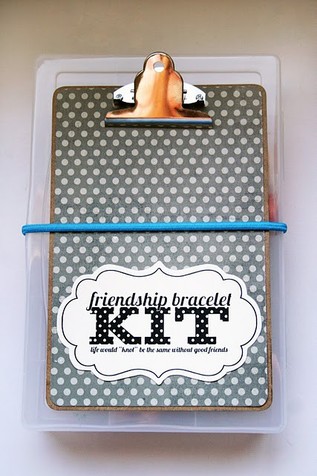

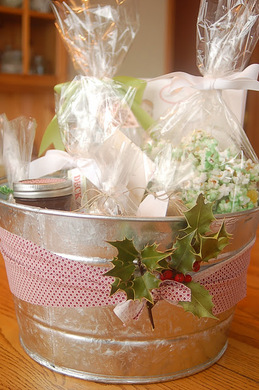
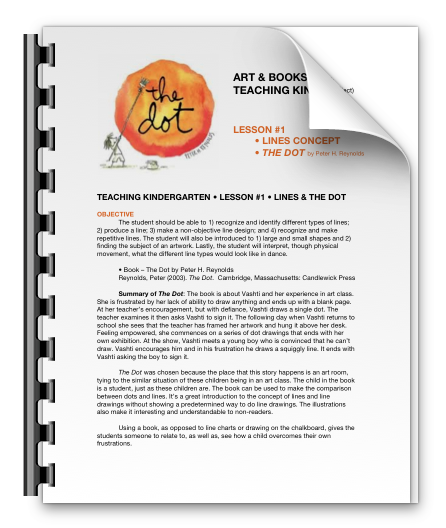
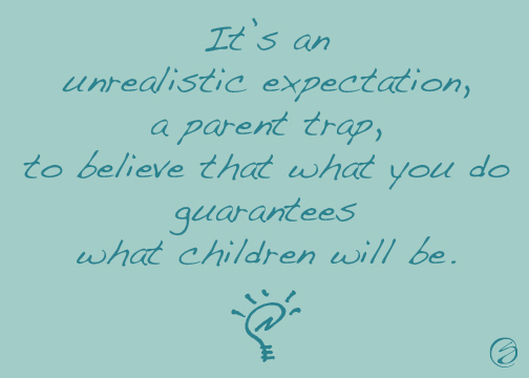
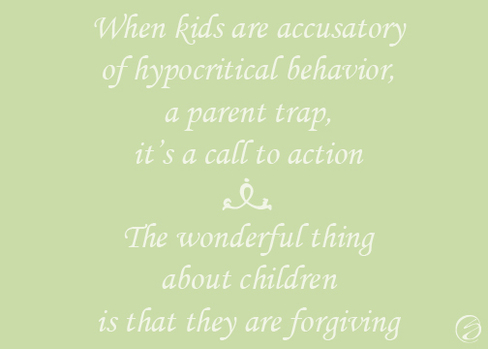
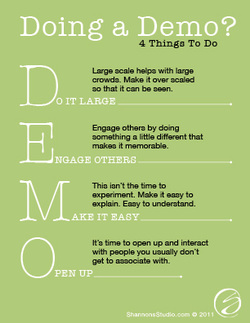



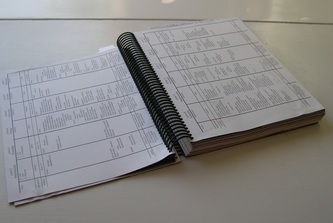
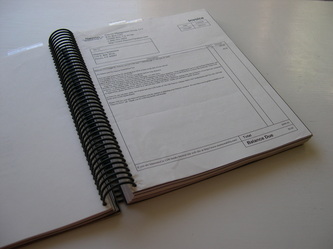
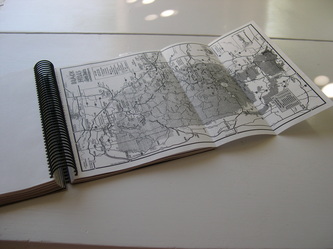
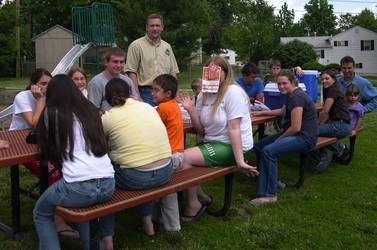
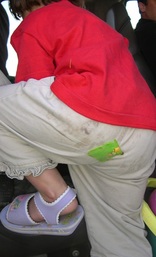
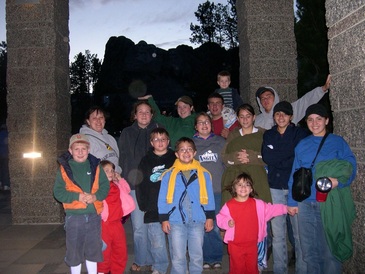
 RSS Feed
RSS Feed